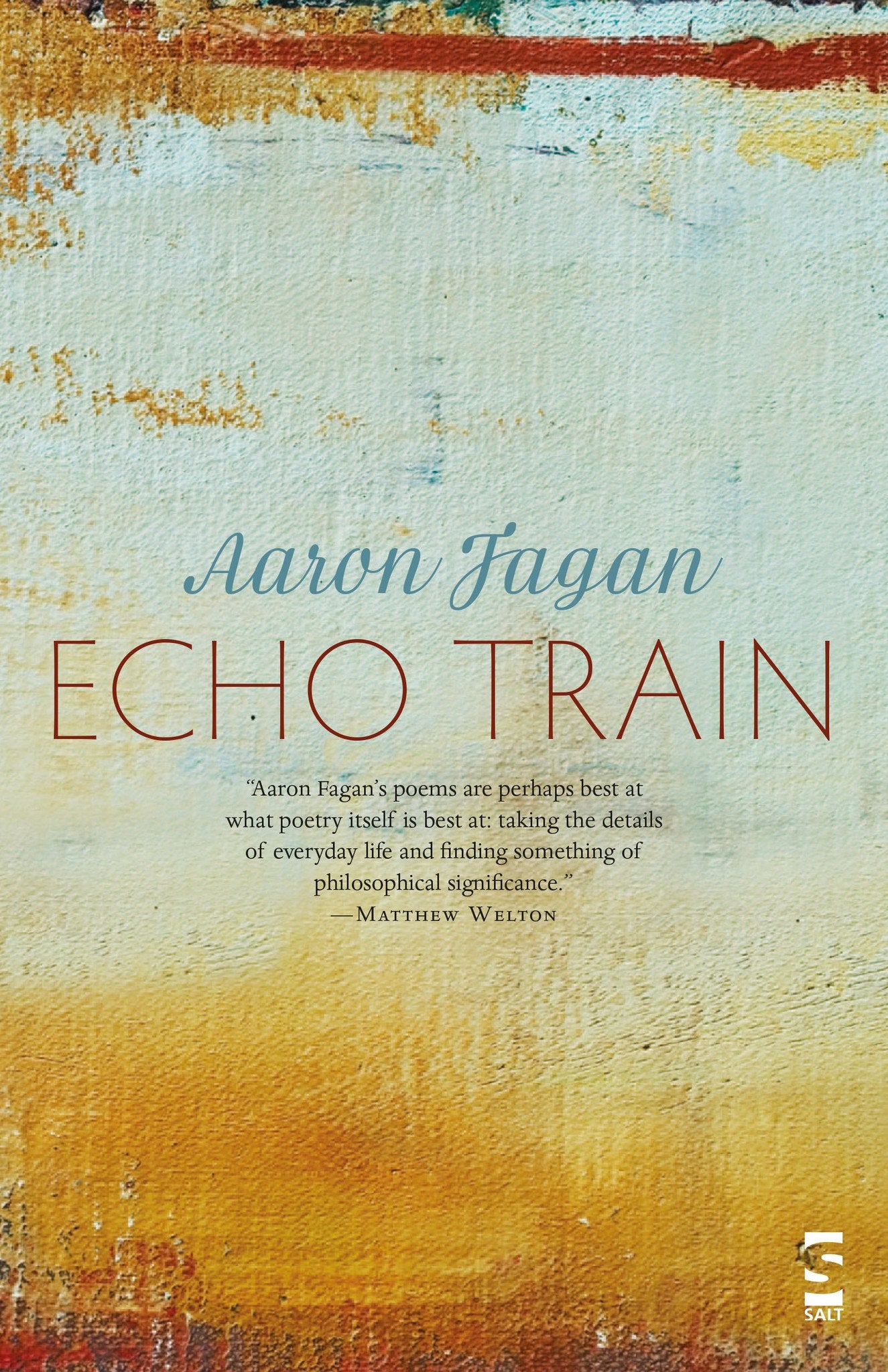Aaron Fagan
Echo Train
Echo Train
ISBN:9781844717491
Couldn't load pickup availability
Synopsis
Echo Train begins "Once upon a time / Books began this / Way" and asks us not “to be shocked to find / We must return and / Stand for what we are” when we reach the book’s end. Readers who said they tend to avoid poetry altogether sat down with the intention of reading one or two poems and found themselves reading it all the way through in a single sitting.
Praise for this Book
‘Somewhere along the continuum of black holes and dividing cells, televised moonlight and Sanskrit tattoos, Fagan makes a characteristic music—bluntly oblique, elegantly perforated—out of the sufferings and strange comedy of the everyday grotesque and everyday irrational, “inventing / My reason to stay out of thin air.” This Echo Train reverberates with remnants of everything from souvenir T-shirts to ancient hymns while emerging into the jagged sound of its own present moment.’ —Geoffrey O’Brien
‘Aaron Fagan’s poems are perhaps best at what poetry itself is best at: taking the details of everyday life and finding something of philosophical significance. The way he does this—with some brutally beautiful sentences, incredible control of rhythm, and all those perfect final lines—is quirky enough that his writing is original and grounded enough that it always feels true.’ —Matthew Welton
Reviews of this Book
‘"Fagan's first book is vivid and aesthetically disturbing work. His promise is considerable because his originality should prove to be decisive."’ —Harold Bloom
‘"Evident [in Garage] is the self-mocking, saturnine temper of such precursors as Alan Dugan (from whom Fagan takes an appropriate epigraph) or even Howard Nemerov. Yet even these anti-lyrics and bedroom palinodes strive towards apt purposes: this poet so given to humble skepticism he still tries to believe that 'each thing we make / Results from the wild permutations of love.'"’ —Publisher’s Weekly
‘"Fagan's work is primarily occupied with distance; his verses often begin by acknowledging a remove from the subject—whether is be person, place or thing—end then, in the most hopeful of poems, subtly closing in on it by the end."’ —Jonathan Messinger, Time Out Chicago
‘Way back in the book-writing era, Plato wrote about the 'old quarrel between philosophy and poetry.' If the quarrel seemed old to Plato while writing The Republic, to make it seem new in 2007 requires some serious ingenuity. In his inventive first book, Garage, Aaron Fagan seems to be the poet for the job. Like Plato, Fagan is interested in definitions: what kind of philosophizing in a poem is an unearned indulgence, while another sort of philosophizing might qualify as art.... As much as Plato attacked poetry, he recognized something vital about a rhetorical stance made lyric; that vitality is sharply present in the questions and turns of thought in Garage. Fagan both considers the 'laws' of poetry and breaks them, a mix that has made for an excellent first book.’ —Idra Novey, The Believer
Product Details
Extent: 80pp
Format: Paperback
Publication Date: 01-Apr-10
Publication Status: Active
Series: Salt Modern Poets
Subject: Poetry by individual poets
Trim Size: 216 x 140mm


